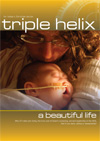Time for private abortion providers to be accountable
Review by Philippa Taylor
CMF Head of Public Policy
A Government consultation on the collection of national statistics on abortion may seem like a dry and uncontroversial topic. However, it has provided CMF with an opportunity to highlight an issue that has received very little publicity but which we believe is vitally important. (1) In England and Wales, many abortions are not properly recorded on women's health records. This means there is no record of them for future medical treatment and care, nor is it possible for linkage research to be carried out on the outcomes of abortion for these women.
With over 200,000 abortions per year, this data is necessary to test the UK evidence of sequelae from abortion. The problem arises because many abortions commissioned outside of the NHS are undertaken without use of the NHS personal number. The NHS number is an administrative identifier, used to match patients to their medical records. (2) The commissioned providers of abortion in England (mainly BPAS and Marie Stopes) are not routinely required to record the patient's NHS number, thus subsequent women's health events cannot easily be linked back to the abortion, and longitudinal research is almost impossible.
Outcomes of abortion and possible side effects (eg possible subsequent premature birth, mental health problems, infertility or other trauma) cannot easily be tracked in England. This puts England behind much of Europe regarding this evidence, including behind Scotland. In Scotland abortions are largely undertaken within the NHS, so good record linkage is available.
In 1991 the NHS funded 9,197 abortions carried out by the private sector – just 10% of private sector abortions. By 2010 the NHS funded 111,775 abortions carried out by the private sector – 93% of all abortions carried out by the private sector. (3)
By 2010 more NHS commissioned abortions were carried out in the private sector than within the NHS in England and Wales (59%). (4) Hence the problem with data collection, as the NHS number is not routinely recorded for the large numbers of private sector abortions.
It could be argued that women undergoing abortion require complete confidentiality and privacy protection, and might be identified through the collection of data via the NHS number. However, all good epidemiological longitudinal research is confidential, which would include research on the outcomes of abortion linkage with the female health record.
Routine record keeping of the NHS number for every abortion should be put in place. The problem is, while we may have the means to do so, there is little political will while publicly-funded private abortion providers enjoy a stranglehold over the abortion industry. (5)
































